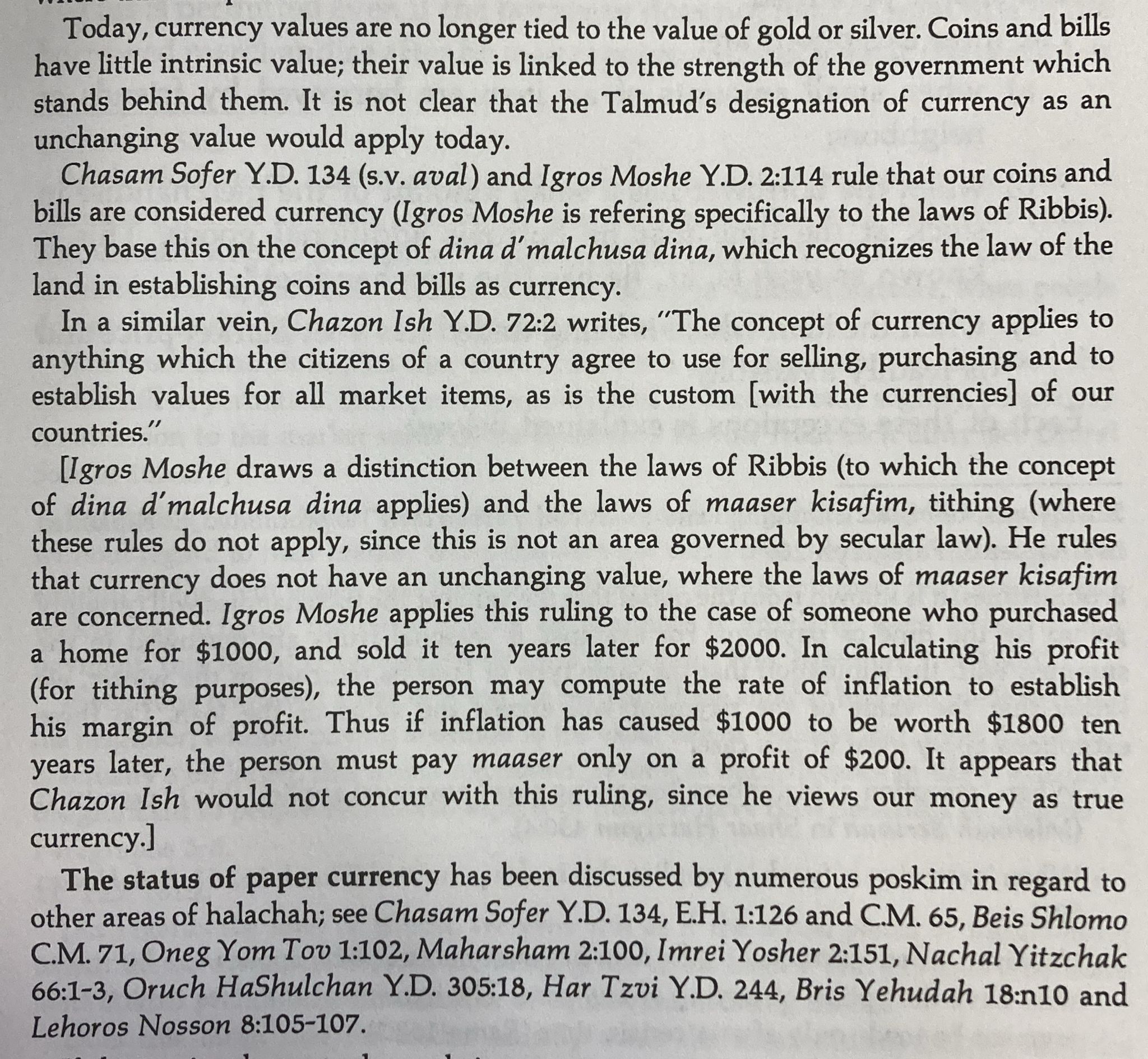When lending money, Jews are not allowed to charge other Jews interest. However, due to inflation, the value of money decreases with time, such that the money that is repaid is worth less than that which was lent. How does Halakha deal with this issue?
Follow-up: What about deflation, where the money repaid is worth more than what was loaned?
I have no idea if inflation existed in the time of Rishonim or Talmud (both in concept and reality.) Would be cool to find out.
Related: What happens if you borrowed money and the currency became worthless?

